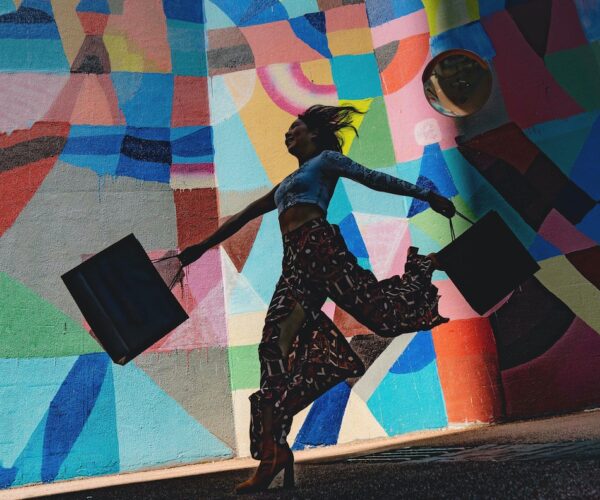by Wharton Jay H. Baker Retail Center, a retail think tank that supports the exchange of ideas, knowledge and research between industry, faculty and students at The Wharton School, always monitors the latest trends. Mina Fader, CEO of the center, says: “The good thing about retail is that everyone can relate to it. In other words, we are all consumers, from Zoomers to Boomers. And, in fact, the younger generations have a powerful influence on the way retailers think and sell.
So what’s hot these days in an ever-changing industry? In her role of auditor, observer and data enthusiast, meet Mina Top 5 list of retail revolutions:
ðŸ›ï¸ Challenges. The retail industry faces the worst supply chain problems ever, inflation and labor shortages affecting sales, prices and product availability on the consumer side . A bakery retail center to study confirms that retail executives overwhelmingly agree that supply chain issues will continue to impact the industry for years to come. Rising costs of goods and shipping often mean higher prices for buyers.
ðŸ›ï¸ Technology. The COVID-19 pandemic has hit the retail industry hard, and yet businesses that had already embraced the technology (online stores!) Were well positioned to thrive, especially during the lockdown. The second element is that physical stores are working hard to understand how they fit into this tech-driven shopping environment. “It’s about understanding what interests consumers and why they are pushed to go to a store,†explains Mina. “People don’t go to the store and work with the salesperson the same way they used to. Now the questions are: where do the shoes come from? How were they made? Is it sustainable? What do you know about this brand? Customer experience has become much more important in the store environment as a lot of people go to the store to get more information and buy it online, and / or they’ve done a lot of research online and they just want to touch and feel the product.
ðŸ›ï¸ Brand ambassadors. Retail businesses turn to everyday social media influencers to authentically show off their styles. “If you have a certain style in your house that matches the culture or the branding, companies are directly instant messaging students and ask them if they would like to be a brand ambassador,†notes Mina. “It’s amazing how many of our Penn students are mini influencers who have a significant following, like Xiye Bastida. “
ðŸ›ï¸ Individuality. The retail industry embraces diversity in every way, celebrating the Black Lives Matter movement, the fluidity of genres, and more. “The retail industry is trying to reach a larger group of people,†says Mina. “It’s a recognition of brands and the retail industry that not everyone is the same or that everyone is unique. Beauty is a good example. Have a product that matches your skin tone and a hair product specifically for your hair type. You see it through clothing and different areas.
ðŸ›ï¸ Objective. Younger generations who care deeply about the environment, sustainability and social conscience (and are even willing to pay more for products that match causes) are making all retailers rethink their brands. It’s a work in progress, says Mina. “These traditional organizations that have been around for a long time and were not in their DNA are realizing that consumers care about this and therefore should care. So how do you present it in an authentic way so that the consumer knows you are serious about it? Again, this authenticity is key. This extends to resale and rental, two important retail trends that are driven by the passion of teens and young people in their twenties for a circular economy: to reuse and reuse materials and products for as long as possible to prevent them from being landfilled. Direct-to-consumer retailers like ThredUp are all focused on the economy – and even established retailers are entering this burgeoning market.
Conversation starters
Do you know or follow young brand ambassadors on social networks? How did they get the job and do you think what they are doing is genuine?
What’s your favorite example of a social purpose retail brand?
Describe your most recent shopping experience in a physical store? How was it ? Did you approach it as a showroom and then buy things online? How, if any, did you engage with the seller?

